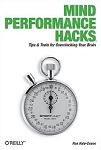Laika Update: She's settling in well to her life here. Our afternoon routine usually consists of going to the off-leash dog park where she can run around like mad with the other dogs. She already has more friends here than we do, and it's very nice to see that she gets along well with other dogs. Today we went to the off leash beach where we ran into one of her park buddies and she was able to run like mad on the beach and in the water (definitely a waterbaby), and eat lots of disgusting things like starfish.
She's a funny girl, and she's fairly well behaved. We just need to work on a few things.
In other news, I'm looking hard for a job. Hopefully I'll get an interview soon. And we both really like Melbourne. I think once we get settled in, with two jobs and furniture, we'll be really content.
She's a funny girl, and she's fairly well behaved. We just need to work on a few things.
In other news, I'm looking hard for a job. Hopefully I'll get an interview soon. And we both really like Melbourne. I think once we get settled in, with two jobs and furniture, we'll be really content.


